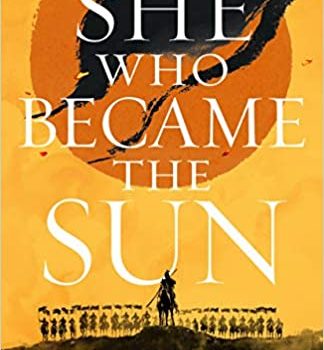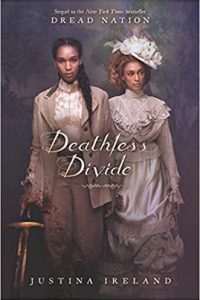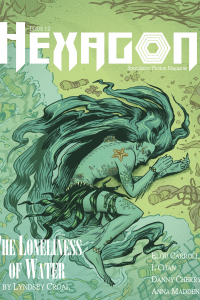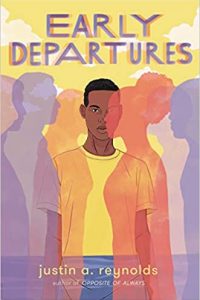Liz Bourke and Alex Brown Review She Who Became the Sun by Shelley Parker-Chan
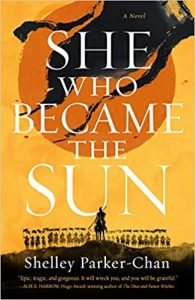 She Who Became the Sun, Shelley Parker-Chan (Tor 978-1-250-62180-1, $27.99, 416pp, hc) July 2021. Cover by JungShan.
She Who Became the Sun, Shelley Parker-Chan (Tor 978-1-250-62180-1, $27.99, 416pp, hc) July 2021. Cover by JungShan.
She Who Became the Sun is Shelley Parker-Chan’s debut novel, and it is an astounding first effort. It sets itself in China in the middle of the 14th century, in the failing years of the Yuan dynasty (the empire of the successors to the khanate inherited by Möngke Khan, Genghis Khan’s grandson). Its main character, Zhu, who spends most of the novel known as Zhu Chongba, is the same figure that history knows as the Hongwu (“vastly martial”) Emperor, Zhu Yuanzhang, the first emperor of the Ming dynasty. But rather than a fictionalisation of the rise of the first Ming emperor, Parker-Chan offers a sweeping queer re-imagining of this episode in history, for we first meet Zhu as a starving girl-child in a peasant village, whose brother is foretold to have a great destiny. But that brother dies, and Zhu – ambitious and desperate for survival – adopts his identity, determined to fool fate itself. It is this revisioning of history as queer that, along with the presence of ghosts and the literal manifestation of the power of the Mandate of Heaven as a coloured flame – power given presence – in its pages, renders She Who Became the Sun into something mythic and transcendent, practically unprecedented in historical fantasy.
No, seriously. I can’t think of another novel that attempts the same kind of re-imagining, and especially not such a queer re-imagining. The only book that comes close is Mary Gentle’s Ash: A Secret History, and even so, that’s doing very different things, and has very different central concerns.
There are two separate but linked narrative strands in She Who Became the Sun, and three point-of-view characters who feel significant (a fourth point-of-view character has brief but entertaining interludes). These two strands are the rise of Zhu, as she reaches for greatness – I use she and her when talking about Zhu, as this is what the narrative does when we’re in her point of view, though there is perhaps an entire essay, or maybe a thesis, to be written about the use and interpretation of gender and sexuality in She Who Became the Sun – and the descent of Ouyang, as he reaches for the revenge that is the only thing for which he has survived.
Unlike many other characters, who have historical bases, Ouyang is a fictional invention. He may be an amalgam of historic figures, but his greatest parallel is in historical drama. For Ouyang is the last survivor of a family slaughtered by the family he now serves: castrated, his life spared, he was first slave and companion to the son of the house, Esen-Temur, and is now his battlefield general. Ouyang loves Esen, and hates him too: the fate that Ouyang’s driving himself towards is the destruction of Esen and Esen’s whole family, and Esen is oblivious to why he might be hated. It is a deft piece of revenge tragedy, drawing on tropes and topoi from more than one tradition. And as Ouyang and Zhu face each other across more than one conflict zone and battlefield, they are each other’s catalysts (and nemeses): Zhu the catalyst for Ouyang’s descent into bloody revenge and the destruction of everything he both loves and hates; Ouyang the catalyst for Zhu’s rise to power, for Zhu’s realisation that power lives in her and not in the façade she presents to the world. It’s very neatly paralleled and stylishly constructed in narrative terms.
The third point of view character is Ma Xiuying, who will go on to be Zhu’s first wife, and one of the few people who know that Zhu has a woman’s body. Ma is the counterpoint to Ouyang’s drive for revenge and Zhu’s desperate, consuming, determined ambition: Ma cares about people, many more people, than Zhu does. Zhu is a force of nature who’ll sacrifice almost anything in pursuit of the greatness that she wants to claim for her destiny. It makes her a very interesting, indeed a compelling, character, but neither she nor Ouyang are easy characters to like. Ma grounds She Who Became the Sun with a reminder that power for power’s sake is a sterile ambition – though it seems likely that Zhu will break her heart over and over again.
This is an expansive, epic novel, filled with political manoeuvering, armed conflict (and a lot of it), and intense emotions. Parker-Chan has a deft, elegant touch with language and a vivid sense for evocating place – and has written an incredibly readable, well-paced debut. There’s a lot to think about and to appreciate here, and I enjoyed it greatly. Definitely recommended.
—Liz Bourke
This review and more like it in the June 2021 issue of Locus.
Shelley Parker-Chan’s debut novel She Who Became the Sun is the first book in a series that reimagines the life of Hongwu emperor Zhu Yuanzhuang, the founder of the Ming dynasty, who was active in China in the 14th century. The book revolves around Zhu, the last surviving child of an unkind peasant father. The reader never learns the name given to her by her parents, which is just as well because she doesn’t keep it very long. After her home is destroyed by bandits, she takes her brother’s name and his destiny to become a great man.
Young Zhu seeks refuge in a Buddhist monastery. The strict routine and close quarters keep her comfortable, if confined. Her life there isn’t easy, but it’s constant, a far cry from the chaos of her childhood. As she grows, she binds her breasts, finds ways around bathing with her comrades, and keeps her monthlies a secret. Tragedy strikes the monastery, and once again Zhu is flung out into the world. This time she chooses to do more than wait for fate to come to her. She’s going to make her brother’s, no, her destiny happen, one way or another.
Fate deposits her with the Red Turbans, a rebel group of Chinese set on driving out the Mongols who conquered the land a century ago. Inexorably, Zhu climbs the ladder of power, using all the cunning and good fortune she can muster. Soon enough, her goals bring her into conflict with Ouyang, the slave-turned-general of Mongolian nobility. As a child, his entire family was executed by the father of the prince he now serves. Ouyang’s life was spared but at the cost of his being made a eunuch. The guilt and shame of that choice haunt him, as does his fraught yet heated relationship with his very attractive master. Zhu and Ouyang’s fates take them down paths that are sometimes parallel, sometimes twisting away, and sometimes smashing directly into each other. Both want to overcome the degradation of their youth by reaching for the stars, but only one can win.
One of the big hooks for me in wanting to review this book were the queer elements. The queerer the fantasy, the better, if you ask me. Parker-Chan delivers. Zhu uses she/her pronouns privately for herself and he/him pronouns in public, and has complicated feelings about the shape of her physical body versus the identity she’s claimed. I can’t get into too much of her sexual, romantic, and gender identities without spoiling the book, but I can say that hers is a story of exploration, questioning, and evolution. The ways Zhu perceives herself and her body shifts over time. Sometimes those changes are caused by external events imposing themselves on her, while others spring forth from her making crucial realizations about herself and her fate. Zhu is ever-changing, and not always for the better. She isn’t the only queer character in the novel, either. Again, spoilers prevent me from talking about the other relationship, but suffice it to say, it’s messy and charged and difficult to untangle.
Gender identity is a tricky thing in this book. Generally speaking, under the Yuan dynasty, women are decorative while men are active. For the elites, women are wives or concubines who bind their feet and serve their men unquestioningly while the men go to war and push around political agendas. The patriarchy and toxic masculinity infecting society turns father against son, brother against brother, and ally against ally. It destabilizes the government and seeds discord throughout the land as politicians and military leaders are regularly executed or exiled, sometimes for crimes committed (both real and imaginary) but just as often for being unlucky enough to be in the wrong place at the wrong time. Any man who refuses to play his macho role is shunned and mocked. Likewise, women who try and step beyond the narrow role they’re assigned are slapped down, hard. Their lives are bound up in men. Few reach for power of their own, and even fewer are able to actually take it. Neither Zhu nor Ouyang fit into either of the narrowly defined gender boxes. Their fates are bigger than social strictures, but the consequences of that rejection make their fates that much harder to achieve.
The fantasy elements aren’t as grand in this book as they might be in other epic fantasies. A few characters see ghosts, while the Mandate of Heaven – the divine right to rule, to put it very simply – is represented as magical flames of different colors. If anything, the story feels closer to magical realism than epic fantasy. To be honest, I was so hooked by the plot that I didn’t notice how light the fantastical elements were until almost halfway through.
As I am unfortunately unfamiliar with Chinese history, I cannot discuss how alternate this alternate history is, but Parker-Chan’s version is compelling and intense. The political scheming here makes the A Song of Ice and Fire series look like child’s play. This book is packed with action and adventure, and even the quieter moments thrum with tension. The writing is sharp, keen, and droll. Parker-Chan’s narrative style is a delight to read.
I keep telling people I’m not into adult epic fantasy, and then I read a new adult epic fantasy novel and prove myself wrong. Perhaps it’s more accurate to say that I’m not into European-inspired adult epic fantasy, because all the ones I’ve loved have been based on non-Western cultures. In the last few years, Black Leopard, Red Wolf by Marlon James, Master of Poisons by Andrea Hairston, Scarlet Odyssey by C.T. Rwizi, and Son of the Storms by Suyi Davies Okungbowa have rocked my world. Now I can add Shelley Parker-Chan’s She Who Became the Sun to that esteemed list. While I’m at it, I might as well add it to my top ten books of 2021. We still have half the year to go, but it’ll be a tough one to beat.
—Alex Brown
This review and more like it in the July 2021 issue of Locus.
Liz Bourke is a cranky queer person who reads books. She holds a Ph.D in Classics from Trinity College, Dublin. Her first book, Sleeping With Monsters, a collection of reviews and criticism, is out now from Aqueduct Press. Find her at her blog, her Patreon, or Twitter. She supports the work of the Irish Refugee Council and the Abortion Rights Campaign.
Alex Brown is a queer Black librarian and writer. They have written two books on the history of Napa County, California’s marginalized communities. They write about adult and young adult science fiction, fantasy, and horror as well as BIPOC history and librarianship. Diversity, equity, inclusion, and access set the foundation of all their work. Alex lives in Southern California with their pet rats and ever-increasing piles of books.
 While you are here, please take a moment to support Locus with a one-time or recurring donation. We rely on reader donations to keep the magazine and site going, and would like to keep the site paywall free, but WE NEED YOUR FINANCIAL SUPPORT to continue quality coverage of the science fiction and fantasy field.
While you are here, please take a moment to support Locus with a one-time or recurring donation. We rely on reader donations to keep the magazine and site going, and would like to keep the site paywall free, but WE NEED YOUR FINANCIAL SUPPORT to continue quality coverage of the science fiction and fantasy field.
©Locus Magazine. Copyrighted material may not be republished without permission of LSFF.


